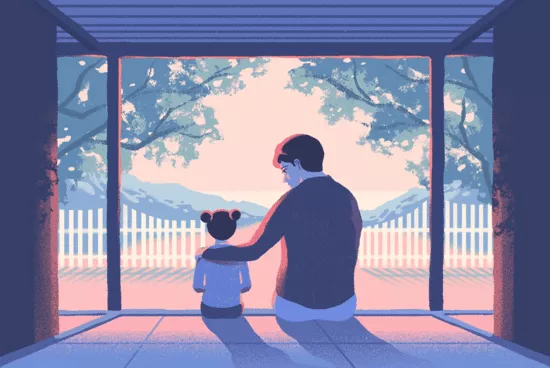Published on: August 22, 2022

Everyone goes through a phase in life where they feel depressed or sad. Of course, it is normal to feel this way from time to time, but if you notice that your child is struggling with depression for a long period, it could be a sign that something more serious is going on.
Depression in teenagers is a serious illness that can affect anyone. Unfortunately, it is often misdiagnosed as a behavioral problem, leading to inappropriate treatment. If your child is showing signs of depression, they may be suffering from depression.
If your child is struggling with depression, you may notice that they lack motivation and are generally unwilling to participate in activities or do chores, even though they may be able to complete the tasks. This can be a sign that your child lacks energy, which is a symptom of depression.
Another sign that your child may be experiencing depression is if they lose interest in activities that once brought them joy. This can include schoolwork, extracurricular activities, or hobbies. Parents need to pay attention to what their children enjoy doing and encourage them to continue doing those things as much as possible, even if it seems like they’re not having fun anymore. Depression can make people feel like their lives aren’t worth living anymore, so parents need to help their children see that there is still joy available, even when it feels like everything else has been taken away from them by this illness!
Children who are depressed often feel like they’re alone, even though they have many people who care about them. They might start avoiding their friends, and if they do hang out with them, they may seem uninterested in what their friends are talking about or doing. They may also have trouble talking to others—even their family members—and avoid them as much as possible.
If your child is sleeping too much or too little, it could be a sign of depression. They may also experience nightmares or trouble falling asleep. If this goes on for more than a few weeks, talk to your pediatrician.
Your child’s eating habits can also be affected by depression. They might not want to eat at all or overeat and become obese. This can happen because depression makes them feel less hungry or have more cravings for sweets and junk food.
Children with depression often feel hopeless, worthless, or guilty. They may think they are the cause of their parent’s divorce or have failed in some way. They may think they are not living up to the expectations of others. They may also believe that they are responsible for making family members happy.
If you’ve noticed that your child has been complaining about aches and pains since they were a toddler, it’s important to talk to them about their feelings. Ask them if they feel sad or upset or if they seem to be in pain. If they say yes, it could be a sign of depression.
Children who suffer from depression often feel they are worthless, have little to contribute, and have failed in some way. This can result in them feeling isolated and alone. These feelings of isolation can lead to further hopelessness, which may increase depression or even create suicidal thoughts.
Children with depression can have a hard time coping with their emotions. They may become irritable and angry and have trouble managing their anger. They may also experience anxiety and worry. These emotional responses are normal and healthy, but they can make it hard for children to live their lives. If you’re concerned that your child might have depression, talk to your doctor about your concerns.
When a child has depression, it can cause them to lose interest in schoolwork, games, and other activities they once enjoyed. They may also feel more irritable or sad and have trouble sleeping or concentrating.
If you suspect your child might be depressed, it’s important to talk to their doctor immediately. There are many different types of depression and treatments that can help your child feel better again.
Don’t hesitate to contact the consultants at HUPC, meet the expert therapist here, who will deal smoothly with the psychological health issues. For more information visit our Mental Health Library page. for anxiety disorder issues Schedule an appointment now or call us at (800) 457-4573.
Discover the essence of Harmony United Psychiatric Care through our impactful numbers. Our experienced team is dedicated to fostering mental well-being.
10
+
Years of Experience
With 10 years of unwavering commitment to mental health, we bring a wealth of experience to support our patients on their journey.
About Us64
+
Providers
Our dedicated team comprises 64 skilled therapists', psychiatrists', psychologists', ensuring personalized and expert care for each individual.
Providers20
+
Locations
Across multiple locations, we extend our reach to provide accessible mental health care tailored to diverse communities.
Locations114581
+
Patients Served
Over 114581 patients have entrusted us with their mental well-being, experiencing compassionate care and positive outcomes.
Book AppointmentWelcome to the latest edition of “Discover Harmony,” the newsletter from Harmony United Psychiatric Care! In this edition, we bring you insights, updates, and valuable information to support your mental well-being journey.
Subscribe to newsletter